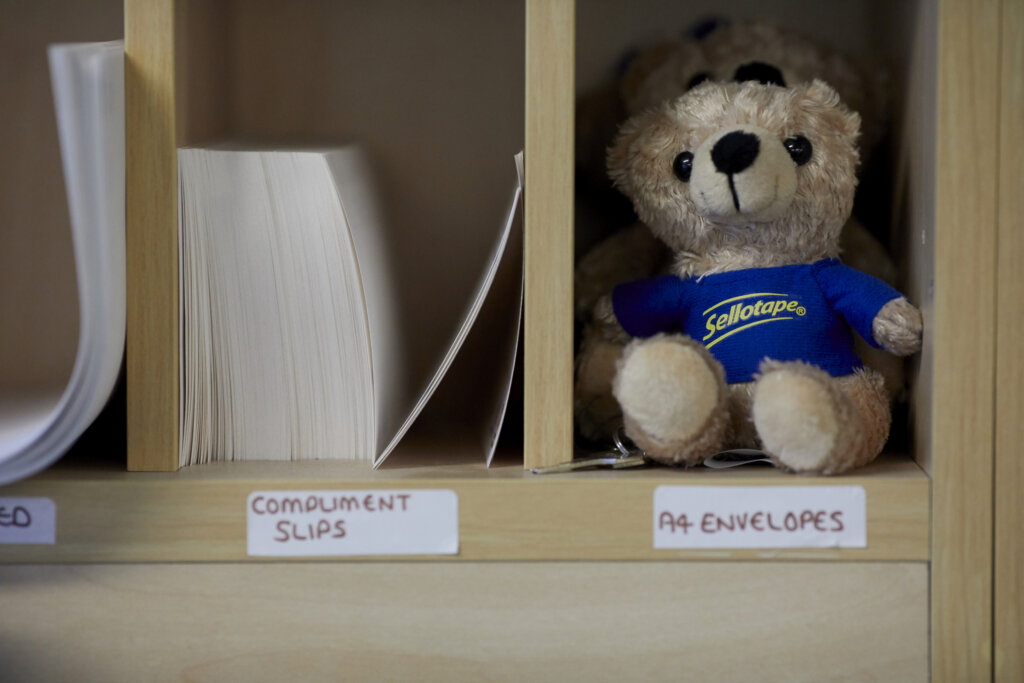The Prime Minister’s cabinet reshuffle and ambitions for post-16 education
In his new role as Prime Minister, Rishi Sunak appointed his cabinet earlier this week. Whilst a number of ministers stayed in the same posts, Gillian Keegan was promoted to the role of Education secretary, replacing Kit Malthouse. She is the fifth minister to hold the position in the last four months. Geoff Barton, general secretary of the Association of School and College Leaders (ASCL) warns ‘this revolving door shows a complete disregard for the importance of what should be a key government post and it must stop.’
As a former skills minister, Keegan will be at the heart of ambitious reforms to put vocational education at the forefront of policy. Keegan left education at 16 for an apprenticeship at a car factory, before going on to study business at university. With almost thirty years of experience living and working abroad in manufacturing, banking and IT industries, Keegan appreciates the value of vocational provision and skills training. She has also spoken about her commitment to expanding special education needs provision and funding, emphasising ‘we need to ensure that we are providing brilliant care, not just adequate care.’
Former education ministers, Nick Gibb and Robert Halfon, are also returning to the Department for Education. The Prime Minister has plans to introduce a new “British Baccalaureate,” which would require pupils to study maths and English in sixth form, alongside personal development and research projects. There are also ambitions to establish a ‘network of world-class technical institutions focusing on apprenticeships and the new T-levels.’ In his former role as chair of the Education Select Committee, Halfon advocated for post-16 education reforms, where ‘instead of just three A-Levels, you’d have technical, creative, practical subjects and you would look at how we could make the curriculum fit for the 21st century.’
In contrast, Gibb has previously warned against the abolishment of GCSEs, claiming that ‘such a dismal and unambitious policy’ would widen the attainment gap. However, unions are largely in support of any measure that would ‘place a greater focus on technical and vocational education.’
Rise in referrals to children’s social services driven by schools
Government data shows that referrals to children’s social services are now at the highest level since 2019, largely due to an increase in referrals from schools. In the year leading up to March 2022, there were a total of 650,270 referrals. Of these, 129,090 were made by English schools, the largest number since reporting began in 2014 when the figure stood at 85,630.
Whilst the police remain the largest source of referrals to children’s social care, schools now account for two in every ten referrals. The government writes ‘this increase might have been expected, since school attendance restrictions were no longer in place in 2022.’ However, pre-pandemic data shows that there have been annual increases in referrals from schools since 2014.
Between 2013 and 2022, the percentage of referrals which resulted in no further action fell by just under half, from 14.5 to 7.6 per cent. The government suggests this is because children are triaged to early help and other services, meaning that those referred to children’s services are more likely to meet the threshold for a social care assessment.
Overall, 404,310 children were assessed as being in need, the equivalent of one in every thirty children. More than half had abuse or neglect identified as their primary need, rising by five percent from the previous year. The most common additional factors included concerns about the child’s parent being a victim of domestic abuse (160,690) and concerns about the mental health of the parent (158,330). A spokesperson for The Children’s Society says that child abuse was hidden during national lockdowns, when ‘some children were out of sight of professionals including teachers, which meant they were unable to spot risks facing young people and refer them for support.’
Now, leaders across the sector and beyond call for the government to make child protection a national priority, underlining the importance of investing in services to protect children from the harms of abuse, neglect, crime and exploitation.
Ofsted highlights the challenges of the National Tutoring Programme
In the last academic year, Ofsted visited 63 schools to carry out an independent review of the National Tutoring Programme (NTP). In over half of these schools, inspectors found that pupils benefitted from well-planned and high-quality tuition. However, in other settings, Ofsted identified several challenges that were limiting children’s progress. In ten of these schools, tutoring was judged to be ‘haphazard and poorly planned.’ The inspectorate notes that workload was often a barrier, however ‘there was also a fundamental misunderstanding of the elements that can make tutoring successful.’
Tuition was often weakest in schools with poor assessment procedures, meaning that schools could not effectively evaluate its impact on pupil progress, and often misjudged when to stop tuition for individual pupils. Alternatively, schools that used formative assessments were able to determine ‘whether a pupil had sufficiently caught up and no longer required tuition,’ allowing schools to allocate the remaining time to those who stood to benefit the most.
Overall, school leaders and teachers felt that tuition was having a positive impact on pupils, improving their ‘confidence, self-esteem and motivation.’ However, Ofsted outlined that without an effective means of assessment, many ‘leaders do not really know if tutoring is working.’ In thirteen schools, leaders had not considered their methods of assessment at all, relying instead on individuals’ perceptions to determine whether tutoring was having an impact.
Schools that took an ineffective ‘ad-hoc approach’ to identifying pupils and gaps in knowledge were often responding to workload pressures by ‘fitting the tutoring programme in around other school priorities.’ In a survey carried out by National Foundation for Education Research, more than 90 percent of school leaders said their workload increased with the NTP. Leaders said that funding was ‘incredibly difficult to manage,’ whilst guidance was also ‘incredibly complicated.’ One primary school leader explained, ‘I’ve spoken to many heads in other schools who haven’t touched NTP because they know the workload is too much.’ A further eleven percent said their school was not using any of the NTP routes at all.
In response to the review, a spokesperson for the Department for Education has said:
Working with hundreds of schools and trusts, One Education understands the many challenges that teachers can face – from tracking pupil progress to keeping children safe.
With a wide range of services, from Education Welfare & Safeguarding to School Development, we can help you to raise standards across your school and achieve the best possible outcomes for children.
Get in touch to find out more.















